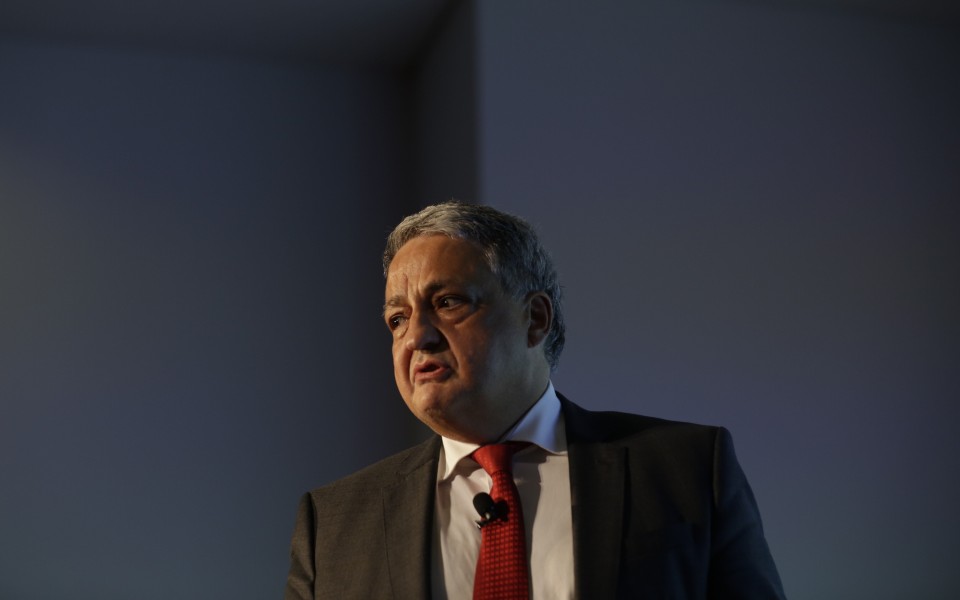Having given the start signal to increase interest rates on term deposits, the State Bank is now working to reduce the profitability of these savings products, for a period of 12 or six months, given the possibility of the European Central Bank reducing interest rates in the summer.
Major banks have already begun adjusting their deposit rates in light of the possibility of a rate cut by the European Central Bank, with Christine Lagarde opening the door to a cut in the summer. Caixa Geral de Depósitos (CGD), the largest bank in the national financial system, also took this step, reducing the profitability of its term deposits, to 12 shorter term deposits, to six months, which are now subscribed to maturity. In July.
According to the consultation conducted by Jornal Economico on the state bank's offer, Caixa's 6-month non-refillable deposit, with a minimum of €500 and a maximum of €500,000, now has a total nominal annual rate (TANB) of 3.350%, when an application in the same product allowed in At the end of last year, customers received a gross remuneration of 3.50%.
In the case of a 12-month non-top-up Caixa Net deposit, with a minimum of EUR 5,000 and a maximum of EUR 200,000, the bonus rate is 2.950% in the initial period, rising to 1.500% in subsequent periods (after renewal). Until last month, Caixa's TANB ratio on this product was 3.25%.
When asked about the explanation for these changes in the bonuses of the two main term deposits of Public Capital Bank, it was not possible to get a response from CGD.
“Caixa has traditionally had a more loyal customer base, and this gives it room to maneuver in its savings offers,” says Felipe Garcia, economist at Informação de Mercados Financeiros (IMF), when asked if a CGD rate cut could be a possibility. Impact on the rest of the sector However, he says: “It must be recognized that CGD was neither one of the last to raise deposit rates nor one of those to raise them the least, so I don't think any particular reading should be excluded from this decision.” .
The government bank was not the only one to take this step, nor was it the first to reduce interest rates on deposits after it was the one who took the initiative to increase the fees for these applications. The interest rate index (BPI) was also lowered in the short term, from 3.5% to 3%. After 12 months, the bank led by João Pedro Oliveira e Costa is now offering 2.5% interest, compared to the previous 3.5%, with a minimum of €250 and a maximum of €500,000, Expresso reported.
The Banque Centrale Populaire also went on to cut deposits a year ago. In the case of the bank led by Miguel Maia, the Net Millennium Flexível deposit, with a minimum of €250 and a maximum of €500,000, pays TANB between 1.05% and 1.50%. Asked whether it had also reduced profitability to six months, the financial institution said it did not comment on its commercial policy.
JE asked Novobanco and Santander whether they had made similar changes, but had not obtained any clarification from either bank at the time of writing.
The move taken by the banks follows the Euribor trend in the market. Interest rates have risen as the European Central Bank's monetary policy returns to normal, recently exceeding the 4% threshold. The State Bank gave the starting gun to raise interest rates, targeting small savings. CGD CEO Paulo Macedo said in November 2023 that it was necessary to “return to normal, which is for deposits to be rewarded.”
But that reality appears to have changed since November, when the euro began to fall, with signs of relief from the central bank in the face of declining inflation. The 12-month Euribor rate now stands at 3.655%, after reaching 4.228% in September last year. The six-month Euribor, which was above 4% between September and December, now stands at 3.908%.
Low interest rates on deposits and credit
Faced with this change in trend, major banks have already begun to change their deposit rates. “It is natural that there will be a downward adjustment throughout the year, following what is happening in the money market and Euribor interest rates, which are also already falling at different maturities,” Felipe Garcia, of the International Monetary Fund, tells JE, noting that “it will be The maximum interest rates on deposits are already seen in the last quarter of 2023.”
But at the same time that financial institutions are reducing the profitability of savings products, they are also reducing the interest rates they charge on fixed-rate mortgages.
If at a time interest rates rose much faster than deposit rates, then when the cycle reversed we saw a movement at the same time. For example, Kaisha recently reduced its two-year fixed rate to 3.25%, from 3.75% before.
This decline may be widespread in the sector after Christine Lagarde, head of the European Central Bank, admitted that she could go ahead with interest rate cuts in the summer. “I would say it's possible,” the official said in an interview with Bloomberg in Davos, Switzerland, after being asked about a possible drop in interest rates, though she said she “should be conservative” on the matter. He pointed out that the final decisions depend on the development of some indicators.

“Wannabe internet buff. Future teen idol. Hardcore zombie guru. Gamer. Avid creator. Entrepreneur. Bacon ninja.”

